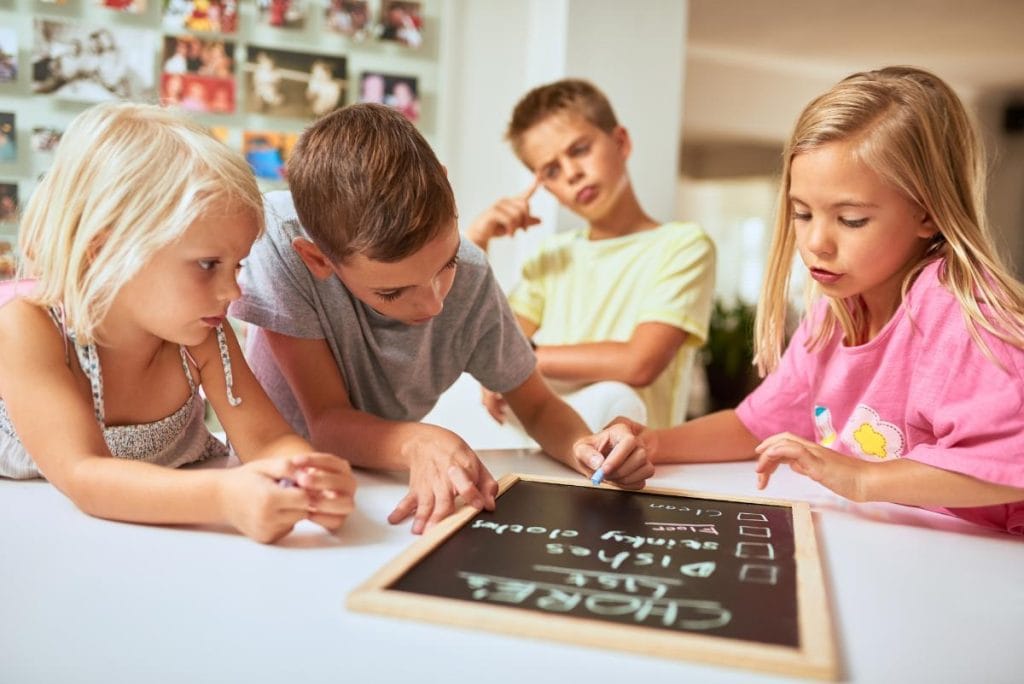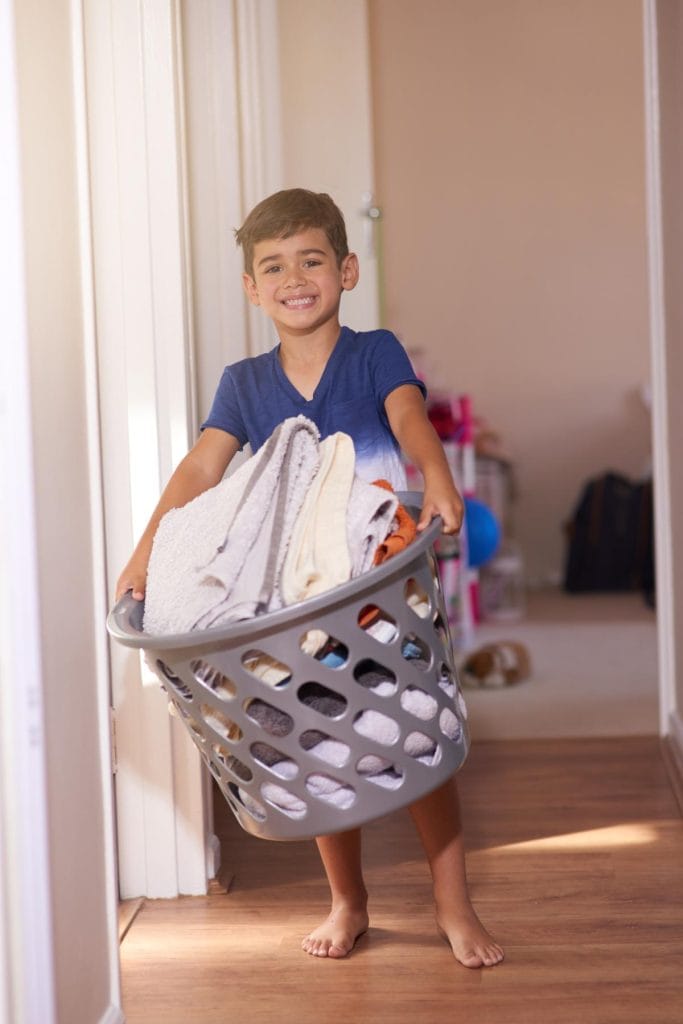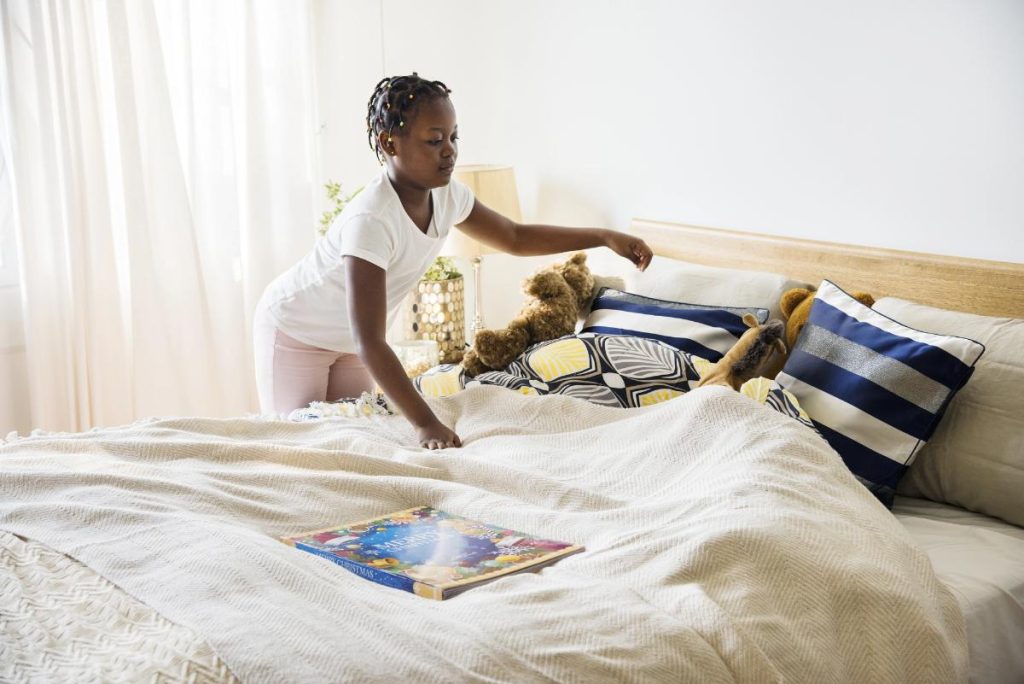
It’s easy to think that the biggest lessons in life happen in big, dramatic moments. But for children, the most lasting life skills are usually learned in the quiet, consistent rhythms of home. From how we respond to a spilled cup of juice to how we handle being late for school, these day-to-day interactions play a powerful role in shaping who our kids become as adults.
The good news? You don’t need elaborate plans or perfect parenting to raise a resilient, responsible child. You just need to recognize the value in the little aspects of life.
Here’s how everyday moments can teach the skills that last a lifetime—and how to make the most of them.
Morning Routines Teach Responsibility
When your child gets up, brushes their teeth, gets dressed, and packs their bag—even with a little help—they’re practicing organization, self-discipline, and independence. These small morning routines build the kind of consistency that supports future work habits and time management.
Make it fun by turning routine into rhythm: a morning checklist, a visual schedule, or a simple “beat the clock” game can keep it positive.
Meal Times Build Connection and Communication
Family meals aren’t just about nutrition—they’re where children learn to listen, take turns, express thoughts, and engage in conversation. Even if dinner is just 20 minutes around the table, it’s a powerful opportunity to nurture empathy and social skills.
Encourage your child to share facts about their day or ask others questions. These tiny conversations build confidence and emotional intelligence over time.
Chores Instill a Sense of Contribution
Whether it’s feeding the dog, folding laundry, or watering the plants, chores show kids that they’re part of a bigger picture than just themselves. They learn that responsibility isn’t a punishment—it’s an act of care.
Start early with age-appropriate tasks, and resist the urge to redo them “your way.” What matters most is that your child sees themselves as capable and helpful.

Playtime Fosters Problem-Solving and Creativity
Free, unstructured play is where some of the most important learning happens. Building towers, inventing games, or navigating pretend worlds helps children develop problem-solving skills, emotional regulation, and imagination.
Let them lead. Boredom isn’t a problem to fix—it’s the gateway to creativity and innovation.
Money Conversations Build Financial Confidence
Even small money-related decisions—like choosing between two snacks at the store—teach kids about budgeting, value, and choice. These lessons add up quickly, especially when discussed openly and regularly.
You can start building these skills early with simple tools and guidance. Resources like this one that offers life skills for kids highlights age-appropriate ways to introduce financial literacy, emotional intelligence, and decision-making in a way kids understand.
Conflict Teaches Emotional Resilience
When siblings argue or your child faces disappointment, it may feel like a setback. But these moments are actually chances to learn emotional regulation, empathy, and problem-solving.
Help your child name their emotions, take a pause, and talk it through. Model calm responses and let them know that making mistakes is part of learning how to manage emotions constructively.
Bedtime Routines Model Self-Care
Winding down, reading together, or reflecting on the day teaches children that rest is important. This is their first introduction to self-care—a practice many adults still struggle to prioritize.
A calming bedtime routine also reinforces consistency and emotional security, both of which are vital to mental well-being.

Raising With Intention
Every day is full of small, powerful moments that shape how children see themselves, others, and the world. From chores to conversations to quiet time before bed, these daily rhythms are laying the foundation for tomorrow’s capable, compassionate adults.
When you show up with patience, presence, and purpose—even when life feel chaotic—you’re teaching the kind of lessons no textbook ever could. And with the right support and tools, you can keep building those life skills in ways that feel natural, joyful, and lasting.
